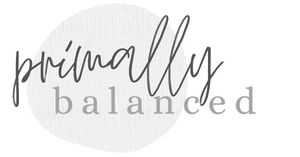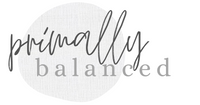Adrenal Dysfunction - What to do about It, Part 2
Continuing with my guest Amy Raimondi, MLIS, NTP on the topic of adrenal dysfunction, she outlines steps you are able take to improve your adrenal health.
Review Part 1 of the article: Adrenal Dysfunction - Signs and Symptoms, Part 1.
--------------------
Adrenal Dysfunction - What to do about It, Part 2
by Amy Raimondi MLIS, NTP
What to do about adrenal dysfunction:
Adrenal issues are quite common because of our modern diets and lifestyles, and even the healthiest clients have some sort of adrenal dysfunction. Through functional testing, I have noticed clients usually fall into two categories of root causes: lifestyle (stress handling) and diet (blood sugar regulation).
1. Lifestyle changes
It’s easier said than done to remove stress from your life, but remember that stress comes in many forms. While you probably can’t get rid of co-workers or family members that cause you stress, you can still make small changes in other areas of your life.
- Make sure you are getting enough sleep. Don’t be ashamed if you need more than 8 hours of sleep per night while you are working on your adrenal dysfunction. Chances are you have been overworking these glands for many years and they deserve a rest in order to eventually recover.
- Don’t push too hard during exercise. Exercise is important but we are trying to not overwork your adrenal glands while you are in recovery. Walking, hiking, yoga, and light strength training are all gentler forms of movement that are not going to tax your adrenal glands.
- Set boundaries. It’s okay to say no to things you don’t want to do (even if you feel obligated to). If you don’t want to go to your co-worker’s daughter’s shower, then politely decline. If that time would be better used for self-care (whether that self-care is in the form of cooking a nutritious meal, taking a nap, catching up on laundry, attending a yoga class, or treating yourself to a spa day...well, that is completely up to you). When most of my clients find their voice, and their ability to say no to things they don’t want to do, is when we really start to see the biggest improvement in adrenal dysfunction and overall health.
- Lie down. If the mid-day fatigue is hitting you, instead of reaching for a cup of coffee or a sugary treat to get through (which only makes it worse in the long run!), trying lying down horizontally for 10 minutes. I know this can be hard if you are out with the kids or work in an office, but get creative: lie on a bench outside, find an empty office, go to your car and lie in the backseat. Sometimes just giving your adrenals 10-minute break can do wonders for recovery and function.
- Invest in a pair of blue light blocking glasses (especially if you have trouble winding down or falling asleep at night). I bought this cheap pair on Amazon (they do have nicer ones if you’re willing to invest more money) and while they look goofy, they work great. Blue light from our electronics stimulate cortisol and suppress melatonin; this will help regulate your cortisol rhythms. I put mine on at dusk every night and now I fall asleep as soon as my head hits the pillow. Also, make sure you are using the Night Shift feature on your iPhone or download f.lux if you spend a lot of time on your computer in the evening. Android has an excellent app called Twilight that you can use on your phone or tablets.
2. Dietary changes
- Balance your blood sugar. You don’t need to have diabetes to have blood sugar dysregulation. In fact, low blood sugar issues often develop into insulin resistance and diabetes. Increase your healthy fats and decrease your refined carbohydrate and sugar consumption. I recommend a paleo or primal diet in this case. If you are having issues staying asleep, try consuming something that is high in fat in the evening, like an herbal tea blended with ghee or coconut oil. Healthy fats will keep your blood sugar levels stable so your adrenal glands don’t have to produce cortisol (which will suppress melatonin and wake you up) to bring them back up to a healthy range.
- Increase your Vitamin C intake. If you choose to supplement, be sure you are using a Vitamin C complex. I like to drink rose hips and hibiscus tea, which is an excellent source of Vitamin C.
- Make sure you are getting enough Vitamin B6. B6 aids in digestion as well as adrenal function. Some food sources of Vitamin B6 are wild-caught salmon and tuna, pasture-raised chicken and turkey, grass-fed beef, sweet potatoes, sunflower seeds, spinach, bananas, pineapple, and avocado.
- Consider supplementing with magnesium. Most people are deficient in magnesium because it is not as rich in our soil as it once was. Take magnesium at night as it is relaxing.
- Eliminate caffeine. This is the hardest for most people to do, but it gets the best results (once you get past the caffeine withdrawal). Coffee increases your cortisol output and overburdens the adrenal glands. It also adds additional stress to your liver, which plays a role in blood sugar regulation.

Tips for conquering adrenal dysfunction:
-
Change your mindset
You can’t just say “Oh, adrenal dysfunction is why I feel like crap” and continue your current lifestyle; unless of course you want to continue feeling crummy! You need to be willing to make diet and lifestyle changes...and commit to to doing them. Some people prefer to rip off the band-aid and go all in, some people need to make one small change each week. Figure out what works best for you. If accountability is your issue, consider signing up for a 21-day Challenge by Emily Schromm.
-
Essential oils
Primally Balanced adrenal support oil blends are perfect for your adrenal recovery routine. I like to roll mine over my Chapman Reflex adrenal points, which are located about 1” over and 2” up from your belly button, or over my hypothalamus/pituitary point, which is located just above the eyebrows in the middle of your forehead (sometimes referred to as your third eye).
In addition to the aromatic and therapeutic benefits of the carefully selected oils, the routine use of the adrenal blends sets your mindset for adrenal recovery and function.
-
Patience!
Recovering from adrenal dysfunction won’t happen overnight. It can be a bit of a roller coaster ride, so it’s important to be patient with yourself, and maybe have a conversation with your loved ones asking them to be patient with you while you recover. Everyone around you will be benefit from you being the best version of yourself.
-
Consider working with a nutritional therapist
Find an NTA near you so you can identify your specific nutritional imbalances and get a personalized protocol that will bring your body back to sufficiency.
 Amy Raimondi, MLIS, NTP is a full time health sciences librarian at an osteopathic medical school just outside of Pittsburgh, PA and is finishing up her NTP (Nutritional Therapy Practitioner) certificate through the Nutritional Therapy Association. Amy believes in healing the body and achieving optimal health by eating REAL food. She creates recipes and blogs over at http://amymayshealthyways.weebly.com/ and can be found on Instagram @amymayntpgh and Facebook @NutritionalTherapyPGH.
Amy Raimondi, MLIS, NTP is a full time health sciences librarian at an osteopathic medical school just outside of Pittsburgh, PA and is finishing up her NTP (Nutritional Therapy Practitioner) certificate through the Nutritional Therapy Association. Amy believes in healing the body and achieving optimal health by eating REAL food. She creates recipes and blogs over at http://amymayshealthyways.weebly.com/ and can be found on Instagram @amymayntpgh and Facebook @NutritionalTherapyPGH.
Amy will be accepting new local and online clients at Nutritional Therapy of Pittsburgh beginning late summer/fall 2017.
--------------------
Resources:
Nutritional Therapy Association (https://www.nutritionaltherapy.com/)
Adrenal Fatigue: A 21st Century Syndrome by James Wilson (http://amzn.to/2rRQG7n)
Signs and Symptoms Analysis from a Functional Perspective: A question by question guide by Dicken Weatherby (http://amzn.to/2rkX5Yc)
Disclaimer:
A Nutritional Therapy Practitioner™ (NTP) is certified by the Nutritional Therapy Association, Inc.® and is trained to evaluate a client’s nutritional needs and make recommendations of dietary change and nutritional supplementation. A Nutritional Therapy Practitioner™ is not trained to provide medical diagnosis or treatment of any medical or pathological condition, illness, injury or disease. No recommendation or comment made by a Nutritional Therapy Practitioner™ should be construed as being medical advice or diagnosis.
Amy May Raimondi is a participant in the Amazon Services LLC Associates Program, an affiliate advertising program designed to provide a means for sites to earn advertising fees by advertising and linking to amazon.com.



Leave a comment